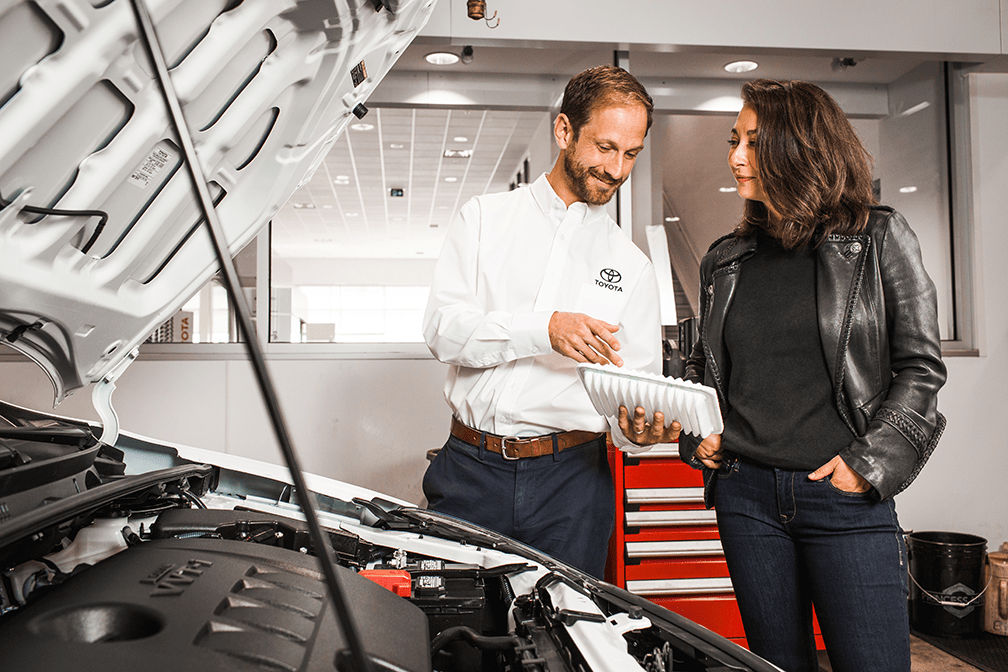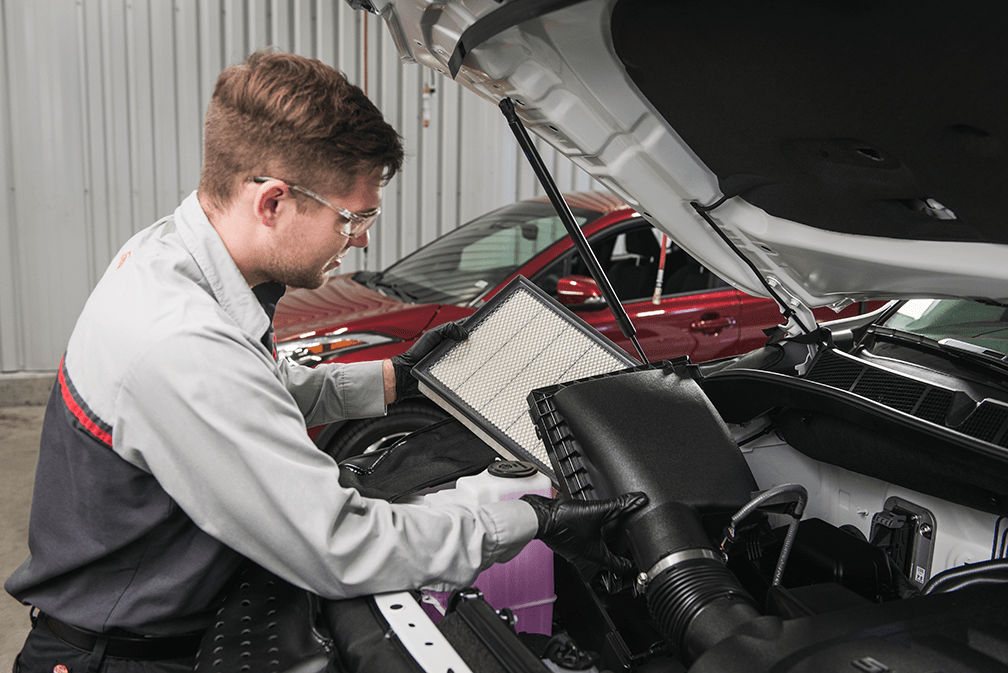Select a province & language
Entrance to this website assumes you have read and agree to these Legal Terms and Conditions and the Privacy Policy.
Entrance to this website assumes you have read and agree to these Legal Terms and Conditions and the Privacy Policy.
Your Toyota vehicle is engineered for years of dependable service and knowing what your vehicle needs in regular maintenance is critical. All cars contain components that protect them from wear, but these parts need to be inspected regularly and replaced when necessary.
One device that is critical to maintaining your car’s fuel efficiency, ease of starting and long-term reliability is the engine air filter.

If you open your vehicle’s hood, you’ll notice large, black ductwork that takes air from the grille and directs it into the engine. At some point along this ductwork, the air will enter a large cube. Inside here is the air filter.
Your Toyota Genuine engine air filter features premium fibres and is designed to keep dust, dirt, sand, pollen and other contaminants out of the air feeding your engine.
Dust and other particles can lead to premature wear of parts inside your engine, leading to misfires, low compression and expensive repairs.
Pollen or other debris that is sticky can accumulate in air passages deep inside your engine, again leading to poor engine performance. In extreme cases, this debris can cause your engine to stop running entirely.
The best answer here is, it depends.
It should be inspected every six months or every 8,000 kilometres, whichever comes first, but replacement will depend on its condition during inspection. It’s a good idea to make sure it’s inspected at every scheduled service interval. You can find your service schedule in your vehicle’s owners manual, or you can search for your vehicle’s schedule online toyota.ca.
If you drive in hot, dusty conditions or spend a lot of time driving on gravel roads, your filter should be inspected more frequently.
When it’s new, the air filter will look white or off-white. A filter that’s ready to be replaced will have turned a dark gray colour.

With every particle your filter traps, it gets a little bit closer to the end of its life. At some point, your filter will get dirty enough that airflow starts to be affected.
A dirty air filter will impact your vehicle in a number of ways, including rough running and hard starting.
When the filter gets dirty, it will start to reduce airflow into the engine. When that happens, sensors in your engine will start to have the engine control computer compensate by adding more fuel.
From there, it can be a domino effect. That added fuel causes deposits to form on your spark plugs, which mean they don’t spark the way they should, and that added fuel could be pushed out, unburnt, from the exhaust.
That unburnt fuel coming out the exhaust will give the area near the exhaust pipe an odour of gasoline and may result in a darker exhaust than usual.
Reduced airflow will also cut your car’s horsepower, so if your car isn’t as peppy as it once was, it could be a dirty air filter. Finally, a spark plug may become so fouled, that cylinder doesn’t work at all.
At some point, your car’s check engine light will probably come on, as well.
It all sounds pretty dire, but the filter is easy to inspect and easy to replace. The best part is it’s something your Toyota certified technician will do at every scheduled service interval.
So, make sure your engine air filter is inspected regularly and enjoy years of reliable service from your Toyota.